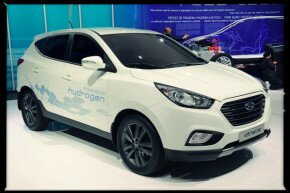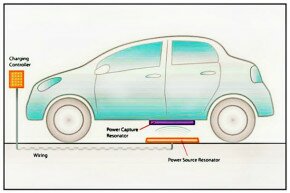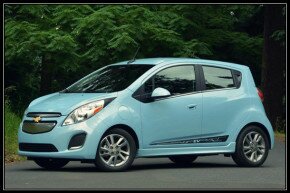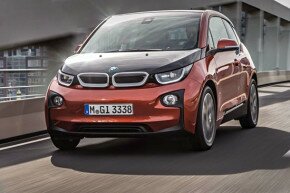Hyundai brings five ix35 Fuel Cell models to London
 |
Hyundai will bring five of its emission-free hydrogen powered vehicles to London. Five Hyundai ix35 Fuel Cell models will become an integral part of the London Hydrogen Network Expansion (LNHE) project.
Hyundai, as a supplier to the LHNE project, will join the existing consortium of companies with expertise in hydrogen transport infrastructure and operation, working to establish the UK’s first hydrogen transport network covering London and south east England.
The LHNE project, a government-backed initiative co-funded by the Technology Strategy Board, will put hydrogen-fuelled vehicles into daily business use and deliver the refuelling infrastructure to support their operation.
These fuel cell vehicles will be leased to key public and private fleet users in the capital. They are among the first of 1,000 examples that Hyundai has committed to produce between now and 2015 from a production line in Korea. However, the majority of those 1,000 cars will be available in Europe where the European Commission has established a number of zero emission schemes.
As the first car company in the world to assembly line-produce fuel cell vehicles, Hyundai has enabled not just the real start of Europe’s Hydrogen Roadmap but also accelerated London’s plans to become one of the major hydrogen capitals of the world.

For Hyundai, the philosophy behind the ix35 Fuel Cell project has been to produce a car that offers the same practicality, safety levels and driving experience as an ix35 driven by an internal combustion engine, but with zero tailpipe emissions.
That means comparable performance – 100mph maximum, 0-62mph in 12.5 seconds and a range of almost 370 miles from each tank – but with no emissions: the only emission is water. Just as importantly, a Fuel Cell vehicle can be refilled in two to three minutes.
Although Hyundai has been developing its Fuel Cell vehicles for more than 15 years, it is only now – with the start of a viable hydrogen refuelling network in place – that it can consider putting a fuel cell car into series production.
Two hydrogen fuel stations are already open in the Capital – one of which has public access – with a third to come as part of the London Hydrogen Network Expansion (LHNE) project. A further three fuelling stations are planned by 2015, by which time it is expected that the number of fuel cell vehicles in London will have risen ten-fold from the initial five to at least 50 or more including passenger cars, buses and scooters.
Tony Whitehorn, President and CEO of Hyundai Motor UK, said: “Hydrogen delivers considerable environmental benefits and we are looking forward to working closely with the other partners to drive forward its widespread introduction.”
The London Hydrogen Partnership has initiated more than £50 million worth of hydrogen projects already. Its partners have been involved in the implementation of the two existing refuelling stations, the operation of five fuel cell London buses which joined the Transport for London fleet in 2011, with another three to join in 2013, as well as a fleet of iconic London taxis, fuelled by hydrogen.















Leave a Reply